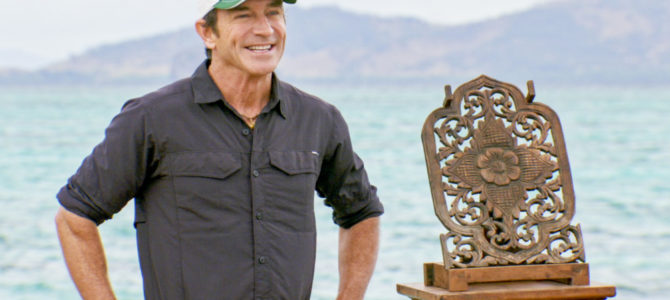Reality television has historically been an escape from the country’s problems. Now it serves as a woke amplification of identity politics and exasperates our problems. We have seen this clear shift throughout this past season of the “Real Housewives of New York,” Bravo TV’s “Southern Charm”, “The Bachelor” franchise, among others.
For over twenty years, the successful and unique competition of CBS’s “Survivor” has pit hundreds of castaways from across the country to “outwit, outlast, outplay” other competitors on a remote island in an effort to win a grand prize of one million dollars.
Last week, the long-awaited 41st season of “Survivor” premiered. In step with the HBO Max reboot of “Gossip Girl,” the COVID theme was rampant and there were noticeably more queer cast members. Frontline health care workers shared stories of their past year and contestants quickly shared about losing loved ones during the pandemic.
Almost immediately, host Jeff Probst met with the castaways and shared that all contestants had been tested for COVID and were cleared to participate. He emphasized being “of the moment” and switched gears to ask if the traditional call for contestants to enter a challenge was acceptable in an effort to be of the moment and inclusive.
“Come on in guys” has been Probst’s longtime entrance call for men and women competitors since the show’s inception in 2000. A woman with short hair in a button-down top and bowtie proclaimed “Jeff, as a queer woman, I am okay with that phrase.” But following the challenge, contestant Ricard, who was revealed to have left his “transgender, pregnant husband” to come on the show changed his mind.
Richard said he was “unable to express his feelings because he was too overwhelmed.” Probst, seemingly relieved, expressed that he was glad that was the last time he’d ever say the clearly triggering phrase, “guys.” In an effort to escape any sort of cancellation like similar longtime reality host Chris Harrison, Probst broke the fourth wall and said “if you don’t like it, I’m @ Jeff Probst on Twitter.”
It goes without saying that “Survivor” is not a new show. Part of the beauty of the game is understanding the players in their personality’s purest form as the episodes follow people after weeks in a jungle with the same people. It is not until dozens of days of mental and physical exhaustion set in that viewers truly get to know the emotional and heart-wrenching stories of why players are in the fight for one million dollars.
An example that sticks out is when viewers learned winner of season 33, Adam Klein’s mother had stage four lung cancer. It was heartbreaking and created an unlikely friendship with Jay, the season’s popular yet likeable villain. Unscripted interactions like this one are memorable and touching because they happen organically.
Furthermore, the first-ever winner of “Survivor” was, in fact, a gay man. In 2000, Richard Hatch’s identity politics mattered little to the game that focused on much more than his sexual orientation. He walked around camp naked, and famously became friends with a proclaimed homophobe, a seventy-two-year-old Vietnam veteran name Rudy Boesch. Boesch stated on the show that his opinion of Hatch did not change when it was revealed he was homosexual.
This natural interaction and somewhat ironic friendship is a part of the series that just puts a smile on your face. It embodies the true spirit of early American reality television.
Since 2000, “Survivor” has been a place where unscripted and complex friendships come alive in a fight to finish the game for more than just the potential monetary prize. Players prove physical, mental, and emotional strength. Historically speaking, there is no room for snowflakes on the show, and I hope that the tribe speaks as loud as my friends and I did while watching the outrageous and unprecedented premiere.
There is a reason that millions of viewers have been tuning in every Wednesday night for the past 21 years, and the changes made in season 41 are just not it.









